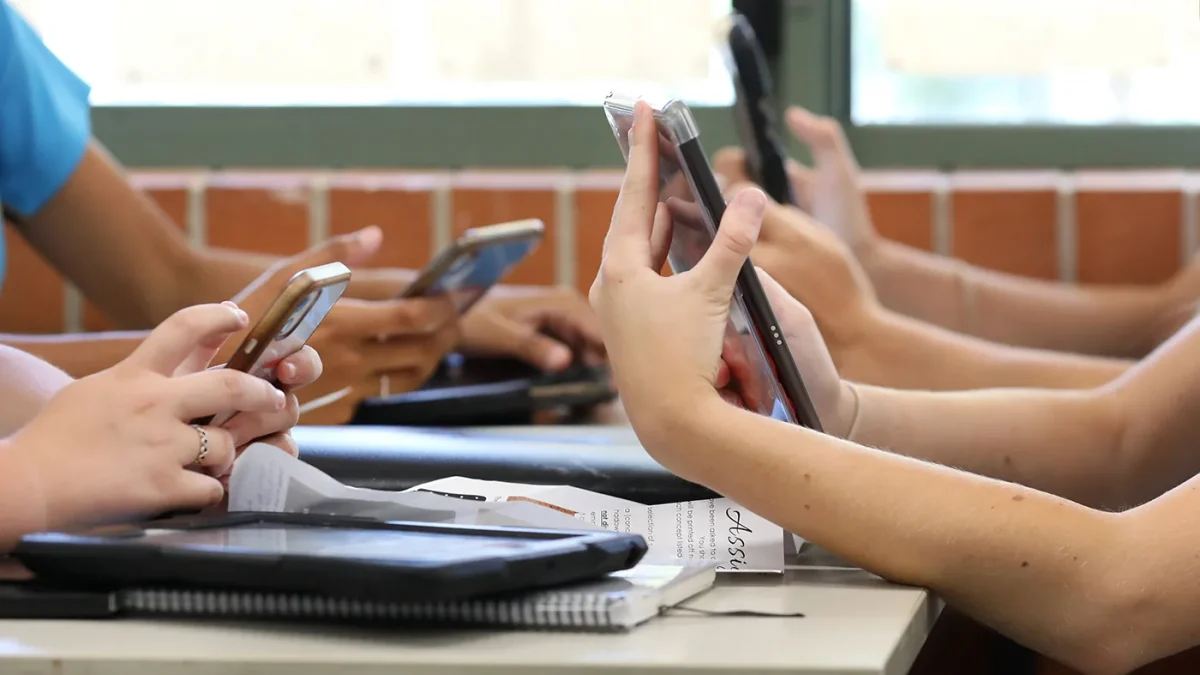To some it is a savior, but to others it is an accursed nuisance: the phone. In the modern age, phones are ubiquitous, and while they may sustain our lives, they are also drivers of our identity as demonstrated by their influence. Our lives, and therefore our realities, revolve around our devices. And it is this relationship that has become a cause for concern amongst parents since adolescents are increasingly veering into dangerous territory.
The concerns surrounding addiction amongst teenagers are justified. According to Dr. Carol Vidal, a child and adolescent psychiatrist at the Johns Hopkins Children’s Center, “excessive social media use is linked to unhealthy behaviors that affect not only mental health, but also physical health. These include behaviors like staying up too late at night and spending less time outdoors, which are associated with internalizing disorders…that involve emotional distress.”
Remaining on these devices has also been linked to deficits in attention spans and an inability to concentrate due to the distraction that phones provide through social media. The same report from Johns Hopkins Children’s Center indicates that some students are unable to socialize and properly interact with others in real life due to this excessive distraction.
In response to this, many states (including Florida, Indiana, Ohio, South Carolina, and Louisiana) have imposed new legislation prohibiting the utilization of phones in schools. Whether or not these actions are an effective tool to combat this looming adolescent mental health crisis remains to be seen.
As for the students themselves who would be impacted by such a change, most of them vehemently oppose the decision to ban phones in educational facilities. I conducted an interview with Emma C, a sophomore at Horace Greeley High School, who disagreed with such a policy. She maintains that many students have substantial downtime in their schedules, and phone use is often a vital part of these breaks. Furthermore, Emma believes that the use of phones actually benefits students in respect to time management, since it compels students to structure their lives in accordance to what they deem is essential. It grants students an autonomy that is otherwise withheld, she says.
Emma also argued for the necessity of having phones in a time where gun violence is sadly becoming the norm; approximately 38 school shootings occurred in 2023 according to figures documented by Education Week. Emma emphasized the need for students to be able to communicate with their caregivers without any issues should an emergency occur. Another tenth grader Isabella L. agreed with Emma’s sentiments regarding this matter.
Ultimately, I feel that high school students should have the freedom to use phones in school without a ban being imposed upon them. Most teachers believe that one learns best from their mistakes, and therefore students should be able to experience first-hand the ramifications of their actions, especially since they will soon have to independently navigate this world upon graduation.
Of course I believe that education is valuable, and phones can prevent a student from taking advantage of this opportunity, but I believe that a ban is wholly unjustified in the face of its excessiveness. Punishments targeting specific incidents should be administered instead of operating under a system which assumes that everyone is unable to regulate their phone use.
The fate of our phones being promptly and swiftly forbidden is uncertain, and I believe that this provides our student body – and other student bodies as well – with the opportunity to reverse what is not an inexorable thing. There is still time.





